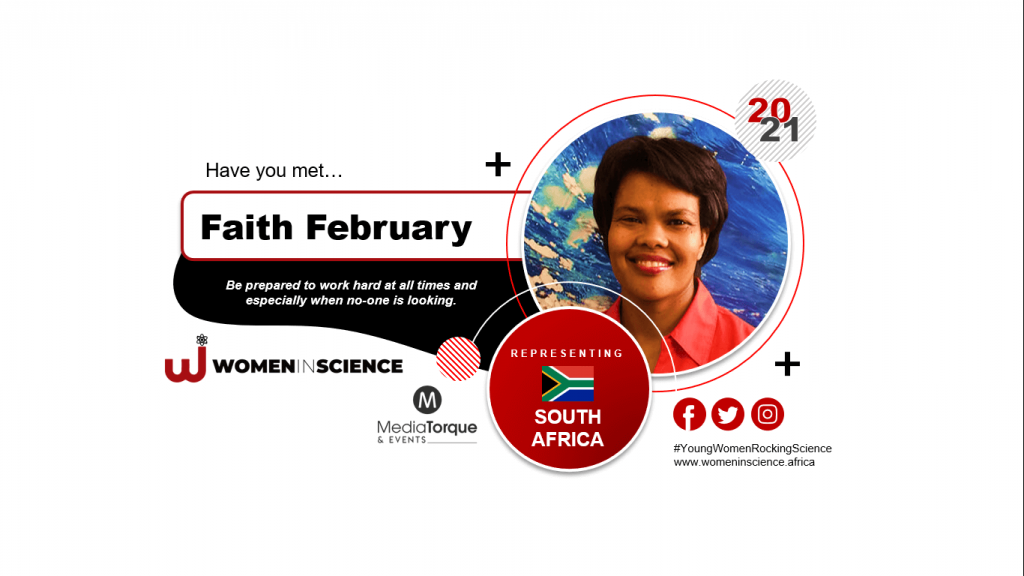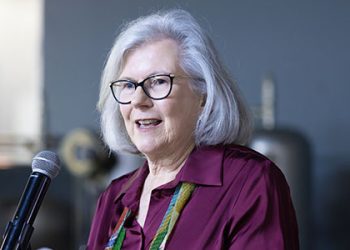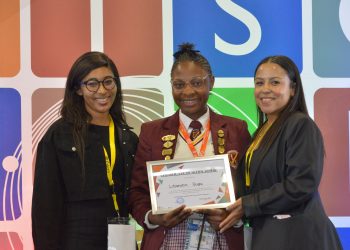Faith February hails from Kraaifontein in the northern suburbs of the Western Cape, South Africa. She completed both her primary and secondary education in her home town of Kraaifontein. February says her parents encouraged her and did everything they could to ensure she gets the best education as they never had the opportunities to do so.
True to form, February put in a lot of work at primary and high schools paving the way for her to enter the tertiary sector. She enrolled with the Stellenbosch University where she completed her undergraduate BSc degree, followed by BSc (Hons) and MSc (Physics) degrees through bursaries.
Primary school teacher
She credits her primary maths teacher who she says motivated and instilled in her love for mathematics so much so that she too entertained the thought of becoming a mathematics teacher. But at university, she says, I got hooked on physics and ended up majoring in maths and physics. “Professor Hans Eggers saw my potential and supported and assisted me to apply for bursaries to complete my Master’s degree in physics,” says February.
Asked why she thinks science is important to humanity, February says science encompasses various concepts and aspects of different fields of study. It is the vehicle, she says, with which we try to explain and uncover the secrets that impact on humanity and its environment.

Obstacles
February says as a woman she encountered obstacles during her career which made things difficult to her. The main one was the fact that the sector is still dominated by males. As a result, some of “my inputs and opinions were always not taken into account or even considered”, she says.
Many times I was left out of opportunities because of the field being highly male dominated,” February says. In addition, she says, the scarcity and lack of visibility of women role models is also another factor that makes the profession less appealing to more women particularly the young ones.
Highlights and achievements
Notwithstanding these challenges, February has some career highlights and achievements to share. She says the fact that she was the first in her family to obtain a Master’s degree in physics stands out as one of her biggest achievements.
“I was given the task to investigate the implementation of infrared thermography in the South African Navy as a newly appointed scientist. After years of equipping myself and obtaining the highest qualification of Level 3 Infrared Thermographer, I established the capability and demonstrated its use on several occasions,” says February.
Other highlights include:
- being a registered Professional Scientist with the South African Council for Natural Scientific Professions (SACNASP).
- getting involved in the First European-South African Transmission Experiment (FESTER) affording her the opportunity of being the first of the international group (Germany, Netherlands, Norway, South Africa) to present some of the results at a conference in Carcassonne, France.
- being part of the inaugural cohort of OceanWomxn fellows, which she reckons is the highlight of her PhD studies
- being a mentor for the Project Kuongoza Mentorship programme with mentees across Africa (Uganda, Nigeria, Kenya & South Africa).
For all those young women aspiring to pursue career in science, February says they must:
- Be prepared to work hard at all times and especially when no-one is looking.
- Don’t wait for recognition from others. Be the change that you want to see.
- Dare to be the odd one out.
- Diversity needs you!







